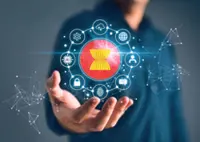Thing is, what becomes obvious when you think about it is that the capacity to create artificial intelligence that operates with such creative power means that somebody could create a similar thing without the ethical constraints. — Image by DCStudio on Freepik
I want to encourage you to learn as much as you can about something called ChatGPT.
It is an artificial-intelligence service that's been launched in the last few weeks. It is not going too far to call it revolutionary.





